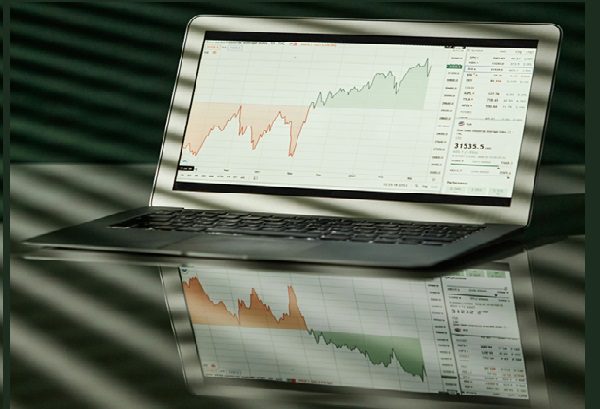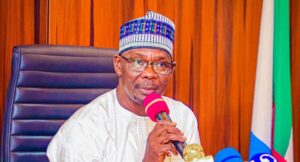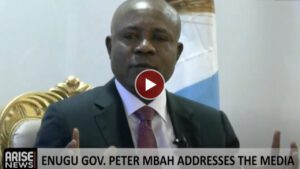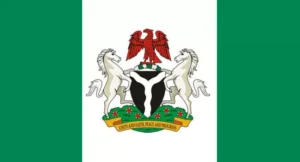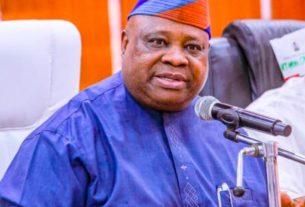What if someone told you that the real catalyst behind Nigeria’s booming online trading scene isn’t flashy financial influencers or global tech hype. It’s the naira. Or more precisely, its unpredictable journey through cycles of devaluation, instability, and inflation.
When local currency becomes a moving target, ordinary Nigerians don’t wait for official solutions. They build their own. One of those solutions is trading forex. Not as a get-rich-quick scheme, but as a hedge. A tool. A digital lifeline against erosion of value. The habits forming in Nigeria’s trading ecosystem aren’t just financial trends. They are survival strategies dressed up in the language of market speculation.
Why Naira Instability Isn’t Just a Macro Problem
Currency instability isn’t abstract in Nigeria. It shows up when prices for basic goods jump within days. It’s reflected in the widening gap between official exchange rates and what’s actually available in parallel markets. The average consumer sees this not in economic charts, but on supermarket shelves, at fuel stations, and in import duties that seem to grow overnight.
For digitally savvy Nigerians, online trading becomes more than just a speculative adventure. It becomes a form of self-preservation. When inflation eats into purchasing power and local assets depreciate faster than they grow, the foreign exchange market offers something domestic markets often can’t: liquidity, optionality, and (if timed right) access to stronger currencies.
The Role of Platforms and Why Infrastructure Matters
But access to global markets means little without quality platforms that can execute, scale, and protect. Nigerians aren’t just flocking to any trading app. They’re hunting for reliability, transparency, and platforms with international credibility.
A growing trend across Africa has seen traders compare interfaces, regulation, withdrawal efficiency, and fees. And in this platform-conscious environment, lessons from other countries matter. Take South Africa, for instance. The Exness trading platform for South Africa has set a benchmark in functionality, real-time execution, and regulated access to global currency pairs.
Similarly, CFD trading in South Africa has matured thanks to an infrastructure that prioritizes risk controls, charting tools, and localized support. Nigerian traders, many of whom share forums and Telegram channels with South African peers, observe and adapt.
These cross-border comparisons aren’t academic. They shape real choices. If a platform glitches during a spike in USD demand, a Nigerian trader might lose not just profits, but faith in the system. That’s why quality platforms aren’t optional; they’re foundational.
Hedging Isn’t Theory But Daily Life
There’s a belief that hedging strategies are for portfolio managers in glass towers. That belief doesn’t hold in Nigeria. For many self-taught traders in Lagos or Abuja, buying USD/NGN or EUR/USD isn’t just about chasing green candles. It’s about protecting school fees, medical funds, or even savings meant for property abroad.
One example tells the story better than any theory. A Lagos-based importer once shared how he began allocating a portion of his monthly business income to online forex trading. Not because he wanted to become a trader, but because buying and holding USD in a brokerage wallet was faster and more discreet than dealing with black market dealers or local banks. Over time, he learned to time his entries around central bank policy announcements and developed enough skill to not just hedge, but sometimes earn. He wasn’t chasing volatility; he was escaping depreciation.
Timing as a Habit, Not a Hope
In stable economies, timing trades might be seen as a luxury or a tool for marginal gains. In Nigeria, timing is oxygen. Central bank decisions, oil price swings, and political headlines are all baked into trading strategies. Nigerian traders don’t wait for volatility. They anticipate it. And that anticipation becomes habit.
This level of reflex isn’t about being aggressive. It’s about being alert. Traders build routines around market sessions, check news wires religiously, and often trade in short bursts rather than long swings. They’re not waiting for the perfect trade. They’re managing risk in real-time, aware that value isn’t something you hold but something you defend.
Key behaviors that have emerged as part of this rhythm include:
- Trading during high-volume periods like the London or New York sessions, when currency pairs move with greater momentum
- Using tight stop losses not just to prevent loss, but to avoid platform downtime or price slippage during regional power outages or data issues
This focus on micro-timing reveals a deeper insight: for Nigerians, trading isn’t about forecasts. It’s about positioning.
The Emotional Economy of Devaluation
Currency instability is both a financial and emotional stressor. Watching earnings lose value month after month shapes psychology. It builds skepticism about long-term naira savings and raises urgency around alternative strategies. This emotional response is crucial to understanding why Nigerians don’t approach trading with passive curiosity. They approach it with intensity.
Platforms that understand this psychological backdrop are more likely to succeed. Traders want education, yes – but they also want respect for their context. Tutorials that start with “What is forex?” feel like a mismatch. The Nigerian audience isn’t naïve. They’re informed by necessity. Any platform or tool that fails to meet that level of urgency is quickly replaced.
Lessons from Nigeria’s Digital Trading Playbook
There are lessons here that extend beyond Nigeria. When a population turns to online trading en masse, not for speculation, but for preservation, it signals something deeper. It signals that traditional economic instruments have failed to provide the security people need.
Ultimately, the evolution of Nigeria’s trading habits reflects not just economic conditions, but a cultural adaptation. One shaped by volatility, but powered by resilience.

